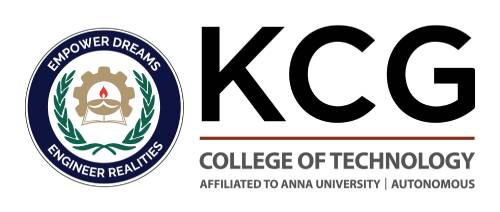Engineering Education 2.0: The Seamless Transition from School to Career
Navigating the transition from school to engineering college is a pivotal step for aspiring engineers. This transformative journey bridges academic foundations with the dynamic demands of the engineering realm. Students witness a shift from theoretical learning to practical applications, engaging in labs, workshops, and projects. The college environment fosters a holistic approach, emphasizing problem-solving, teamwork, and communication skills. Exposure to industry insights through guest lectures and visits enriches their understanding. This transition acts as a compass, guiding students to seamlessly adapt to the rigorous and innovative landscape of engineering education, laying the groundwork for successful and fulfilling careers.
Bridging Academia and Industry
The transition from school to engineering college is a transformative journey that connects theory with practical industrial needs. Engineering colleges play a pivotal role in shaping students into well-rounded professionals, emphasizing hands-on experiences, labs, and projects. This shift cultivates problem-solving skills, teamwork, and effective communication – essential attributes for successful careers. Additionally, exposure to industry experts and visits provides insights into technological advancements, preparing graduates for the dynamic professional landscape. In essence, this transition is a crucial phase that equips students with the mindset and skills necessary for thriving in the ever-evolving engineering industry.
The Role of Educators in Academic Transition
Teachers play a crucial role in helping students bridge the gap between school and engineering college. Their guidance serves as a compass, navigating students through the academic transition. By fostering a supportive learning environment, teachers instill confidence, encourage critical thinking, and provide insights into the challenges awaiting them in higher education. Through mentorship and personalized guidance, educators bridge the theoretical knowledge acquired in school with the practical demands of engineering college. This mentorship not only eases the transition but also cultivates the skills and mindset necessary for students to thrive in their academic pursuits and future engineering careers.
A Mindful Approach to Mental Health
Navigating the paradigm shift from secondary education to the challenging milieu of engineering college poses both exhilarating prospects and daunting challenges for students. Amidst this transition, our institution prioritizes the holistic well-being of our student body, offering a meticulously crafted support system. Comprehensive counseling services, bespoke workshops, inclusive clubs and a nurturing environment collectively underscore our commitment to mental health. This nuanced approach aims to assuage the inherent stressors and anxieties associated with this pivotal phase, ensuring a seamless and resilient adaptation for students.
The Transformative Journey from Freshers to Graduates
The metamorphosis from school years to engineering graduates signifies a remarkable journey of growth and transformation. Students evolve from eager learners to seasoned professionals, equipped with profound knowledge and practical skills. During this transition, they undergo an intellectual transformation, refining their problem-solving abilities and critical thinking. An engineering education at one of the best engineering colleges in India molds them into analytical thinkers, adept at addressing real-world challenges. At the culmination of their academic voyage, graduates emerge not only with a degree but also with a resilient mindset ready to contribute innovatively to society. The transformative process from school to engineering graduate encapsulates a profound evolution, shaping future leaders in the dynamic world of technology.








